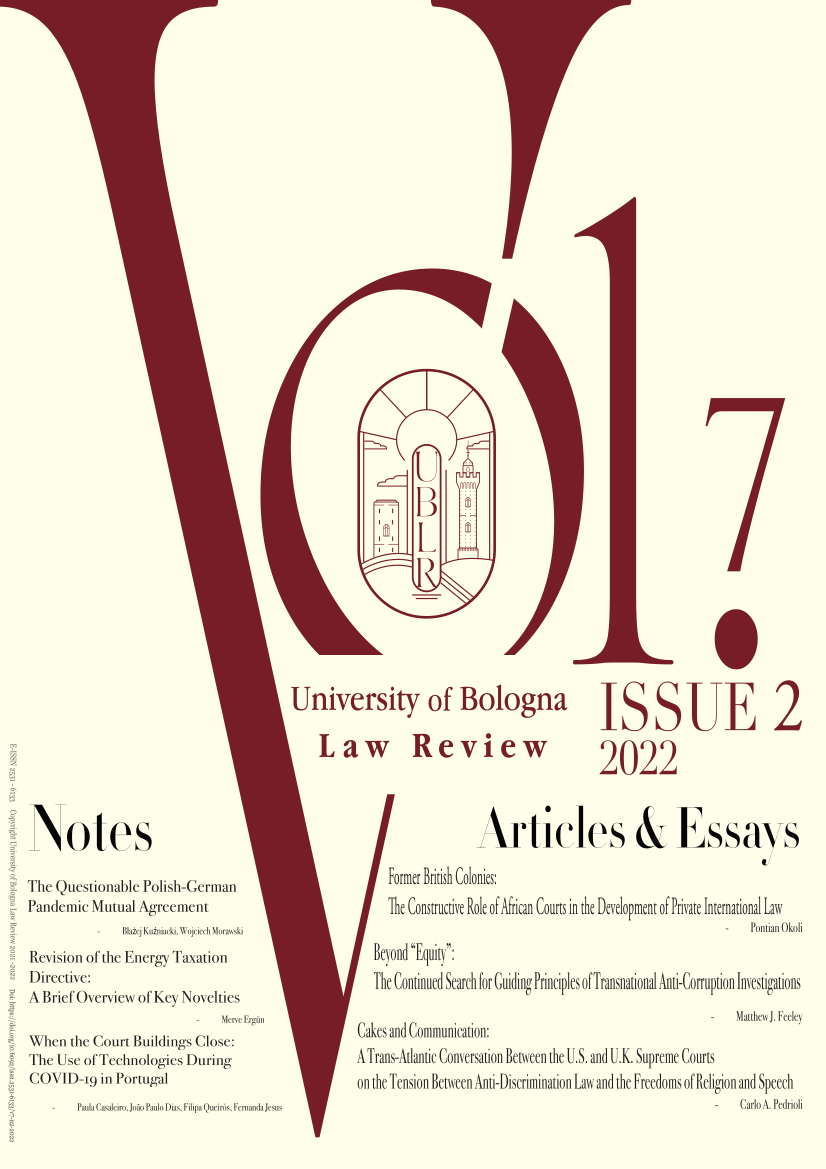Beyond “Equity”: The Continued Search for Guiding Principles of Transnational Anti‐Corruption Investigations
DOI:
https://doi.org/10.6092/issn.2531-6133/15893Keywords:
Anti-Corruption, Bribery, Corruption, Transnational, CoordinationAbstract
The recent global proliferation of domestic anti-corruption laws intended to have extraterritorial application has led to circumstances where multiple states seek to enforce their anti-corruption laws against the same entities based on the same set of facts. This work examines the development of these transnational enforcement circumstances, as well as the attendant policy complications, and poses the following research question: when approaching multi-jurisdictional anti-corruption enforcement efforts, have enforcement agencies developed a set of principles beyond general “equity” to inform their decisions about when and how to cooperate in investigations and coordinate and structure appropriate transnational anti-corruption settlement penalties? To attempt to answer this question, this work evaluates the context of these enforcement developments, recent transnational anti-corruption resolutions and interviews with former and current anti-corruption prosecutors from various states. The work concludes that the following guiding principles are emerging: (1) enforcement agencies seek to coordinate and cooperate during the investigatory stage if the benefits of cooperation outweigh the costs; (2) enforcement agencies seek to coordinate resolutions with enforcement agencies from other appropriate states recognition of jurisdictional nexuses and development of global anti-corruption efforts; (3) enforcement agencies utilize crediting of penalties and profit disgorgements paid to other states to both maintain domestic statutory enforcement and consistency and to encourage anti-corruption capacity building and future voluntary self-reporting by offending entities; (4) enforcement agencies consider “side-stepping” to encourage anti-corruption capacity building and future voluntary self-reporting by offending entities; and (5) enforcement agencies consider deference to other states for monitoring purposes to encourage anti-corruption capacity building. The identification of these emerging principles may provide additional insight into the investigation and resolution process and may inform entities and corporate counsel as they navigate potential transnational anti-corruption exposure.
Downloads
Downloads
Published
Versions
- 2022-12-13 (2)
- 2022-12-08 (1)
How to Cite
Issue
Section
License
Copyright (c) 2022 Matthew J. Feeley

This work is licensed under a Creative Commons Attribution 4.0 International License.














